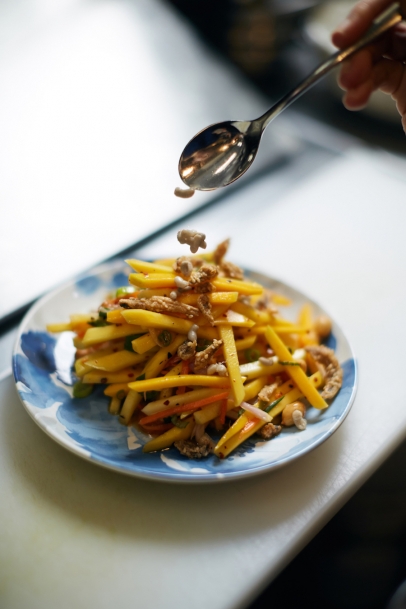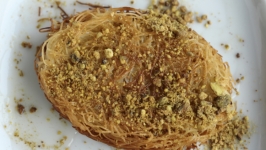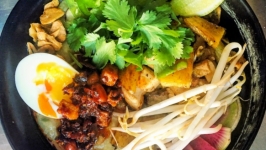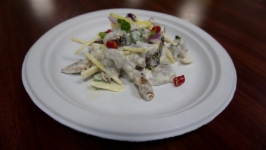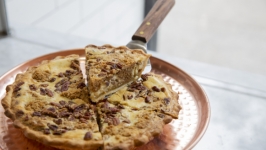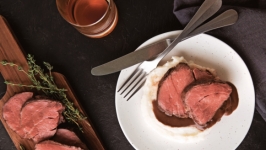Letter from the Publisher: Women's Issue 2019
Many of us have a memory of being a little child in our grandmother’s kitchen, licking her cake batter from our tiny fingers or thrilling at the familiar fragrances of her secret recipes. For those of us fortunate to have spent time with a grandmother, these women are often the matriarchs of the whole clan, charged with imparting familial food traditions, culture and history.
Our grandmothers and our mothers may have grown up in more difficult circumstances than our own, perhaps pioneering a new land in hopes of a better life for our generation and those yet to come. Necessarily, these women developed specific dishes that complemented their environment at the time, perhaps expressed in innovative use of ingredients to replicate what their own mothers and grandmothers had taught them. Their actions became symbols of perseverance, ingenuity, and they take on superhero status in our collective memories.
These are the heroines we celebrate on the pages of this, our second annual Women’s Issue.
Maram Jdeed Shami, chef and owner of Deasura in Forest Hills, sojourned at her grandparents’ farm a few hours from Latakia, a city on Syria’s Mediterranean coast, where she harvested fruits, vegetables, olives and nuts. She learned to pickle, make jams and transform pomegranates into molasses. Shami, as our writer Sonya Gropman discovers, didn’t really know how to cook when she arrived in the States. Instead, she “called upon her memories of watching her mother and grandmother cook, and tasting their dishes, to teach herself.” That is the power of grandmothers, mothers, sisters and daughters—essentially, the power of women.
At times, food memories grip our core so tightly that deviations can feel blasphemous. In her personal story “Time-Travel Tamale”, Allison Escoto reveals a secret: At La Vecina, an eatery in Astoria, she did the unimaginable (spoiler alert)—she ordered a tamale. She describes feeling apprehensive, even rebellious, as she had not considered that a tamale not made with the love of her granny could possibly taste good.
Margarita Estevez of the Rockaways expressed a different form of rebellion. Rather than embrace the kievs and stroganoffs of her native Russia, she turned to spirulina smoothies, ditching meat altogether and becoming a plant-based educator, holding workshops on vegan and raw-food cooking.
When we relocate from our native lands, either by choice or by necessity, we look for ways to bring a piece of home with us. Editor Abby Carney converses with legendary cookbook author, restaurateur and television personality Lidia Bastianich about her experiences settling in Astoria and how “Queens embraced [her] from when she was a teenager.” Bastianich, in her memoir My American Dream, recounts the kitchen lessons learned from her own grandmother in Istria. Her mother, Erminia, now lives with Bastianich and, when not tending to the garden, works alongside her in the kitchen. Together they feed their grandchildren and great-grandchildren.
“A woman can own and do and be strong,” says Vanessa Kim, founder and manager of White Noise in Flushing.
Indeed.
Enjoy our all-female issue that, to quote Lidia Bastianich, invites “Tutti a tavola a mangiare!” (“Everyone to the table to eat!”)
Claudia Sanchez | Publisher | @csmahedy


